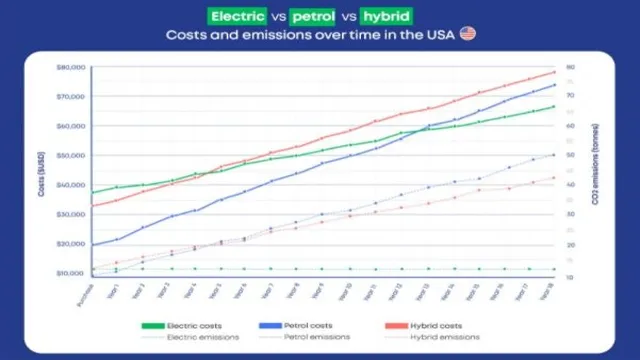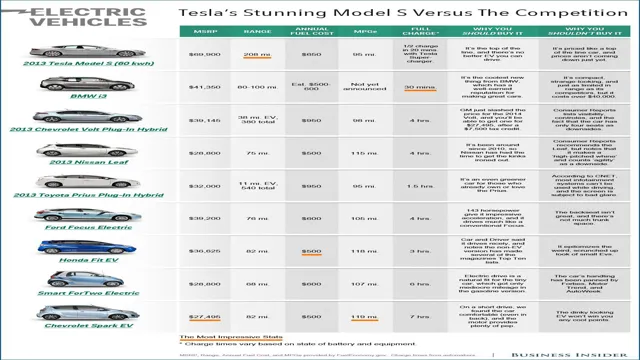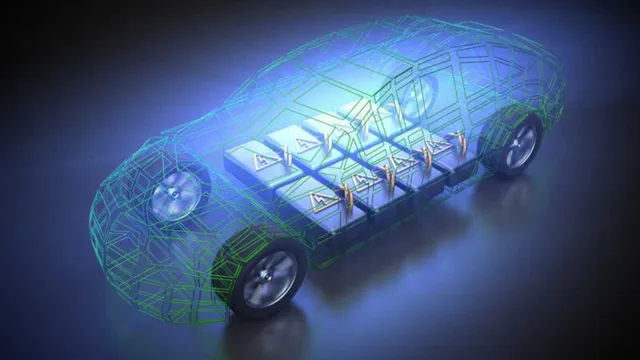Rev Up Your Knowledge: Exploring the Average Miles per Charge & Battery Life of Electric Cars
As electric cars continue to gain popularity, one of the most important factors to consider is their battery life. Electric car battery life directly impacts the number of miles you can travel on a single charge, and ultimately affects how far you can go before needing to recharge. But what is the average miles per charge for electric car batteries? The answer isn’t a straightforward one, as there are many variables that come into play.
However, we’ll dive into the factors that affect electric car battery life so you can have a better understanding of what to expect. So, buckle up and get ready to learn about what you need to know about the average miles per charge for electric cars.
Factors Affecting Range
When it comes to electric cars, the average miles per charge and battery life are two important factors that can vary. The range of an electric car can be influenced by several factors including driving habits, terrain, weather conditions, and the age of the battery. For instance, aggressive driving and high speeds can reduce an electric car’s range, whereas a smooth and steady driving style can increase the number of miles per charge.
Similarly, driving uphill or on hilly terrains, as opposed to flat roads, can reduce the range of an electric car. Weather conditions such as extreme cold or heat can also impact battery life and reduce the miles per charge. Lastly, the age of the battery can affect the range as older batteries tend to have a lower capacity to hold a charge for longer periods of time.
Therefore, it is important to consider these factors when deciding to purchase an electric car, and adjust accordingly to maximize the range.
Battery Capacity and Chemistry
Battery capacity and chemistry play a significant role in determining the range of an electric vehicle. The range is affected by a variety of factors, including the size of the battery, the type of battery chemistry, and the weight of the vehicle. Lithium-ion batteries are the most commonly used battery chemistry in electric cars due to their high energy density, which means they can store more energy per unit of battery weight.
However, other battery chemistries, such as nickel-metal hydride and solid-state batteries, are being researched and developed to potentially improve the range of electric vehicles. Additionally, the vehicle’s weight can affect the range, as a heavier vehicle requires more energy to move. Changes in temperature and driving style can also impact the range of an electric vehicle.
It’s essential to understand these factors to optimize the range of an electric car and ensure that it meets the driver’s needs.

Driving Habits and Conditions
Driving habits and conditions can significantly affect the range of an electric vehicle. Some of the factors that can impact the range of an EV include the speed at which you drive, the terrain of the road, and how much weight you are carrying in your car. For example, the faster that you drive, the more energy your vehicle will consume, which can ultimately reduce your range.
Similarly, driving on hilly terrain may increase the amount of energy needed to power your EV, and carrying a heavy load of passengers or cargo can also reduce the range of your battery. On the other hand, driving in ideal conditions, such as on flat roads, at moderate speeds, and without heavy weight in your car, can help to maximize your range. By taking steps to conserve energy, such as turning off the air conditioning and accelerating smoothly, you can also extend your range.
Overall, being mindful of your driving habits and the conditions you are driving in can help you get the most out of your electric vehicle and avoid running out of power unexpectedly.
Popular Electric Car Models and Their Mileage Range
If you’re considering buying an electric car, you’re probably wondering how far they can go on a single charge. The mileage range of electric cars varies depending on the model, but the average miles per charge electric car battery life is around 250 miles these days. One of the most popular electric cars, the Tesla Model S, can travel up to 402 miles on a single charge.
The Chevrolet Bolt has a range of around 259 miles, while the Nissan Leaf has a range of roughly 150 miles. It’s worth noting that the actual range you get will depend on your driving habits, the terrain you’re driving on, and other factors like temperature and wind conditions. So, it’s a good idea to do some research and consider your driving needs before you decide which electric car to buy.
While electric cars may not have the same long-range capability as traditional gas-powered cars, they can still be a great choice for many people, especially if you do your research and find the right model for your needs.
Tesla Model S: Up to 402 Miles per Charge
Electric car models have come a long way in terms of their mileage range, making them a more viable option for long-distance travel. Tesla Model S, for instance, boasts an impressive mileage range of up to 402 miles per charge, making it one of the most popular electric cars on the market. But Tesla isn’t the only electric car manufacturer to offer a wide range of miles per charge.
Other popular electric cars, like the Chevrolet Bolt and the Nissan Leaf Plus, can travel up to 259 and 226 miles, respectively, on a single charge. With the increasing availability of charging stations and advancements in technology, electric cars are becoming a more sustainable and efficient choice for consumers looking to reduce their carbon footprint. So, if you’re considering purchasing an electric car, there are now many options available with impressive mileage ranges to suit your needs.
Chevrolet Bolt: Up to 259 Miles per Charge
When it comes to electric cars, one of the biggest concerns for potential buyers is the range that can be achieved on a single charge. Fortunately, many popular models on the market today have impressive mileage ranges. Take the Chevrolet Bolt, for example – this sleek and stylish car can travel up to 259 miles on a single charge.
This means you can drive to work, run errands, and even take a longer road trip without worrying about running out of juice. Of course, the actual range you’ll achieve will depend on factors like driving style, climate, and terrain, but overall the Bolt is a great option for those looking to go green without sacrificing practicality. Other popular models include the Tesla Model S (up to 402 miles per charge) and the Nissan Leaf (up to 226 miles per charge).
So whether you’re looking for a sleek sedan or a practical hatchback, there’s an electric car out there with a mileage range that will suit your needs.
Nissan Leaf: Up to 226 Miles per Charge
The Nissan Leaf has made waves in the electric car market with its impressive mileage range of up to 226 miles per charge. But how does it compare to other popular electric car models? The Tesla Model S, for instance, boasts a range of up to 402 miles per charge, while the Chevrolet Bolt EV has a range of up to 259 miles. It’s clear that electric cars are becoming a more viable option for those looking to reduce their carbon footprint and save money on fuel costs.
As technology continues to improve, we can expect to see even greater mileage ranges from electric cars in the future. It’s an exciting time for the industry, and consumers have more options than ever before. So, whether you prioritize range, performance, or price, there’s an electric car out there for you.
How to Maximize Your Electric Car Battery Life
If you want to get the most out of your electric car battery life and maximize your average miles per charge, there are a few things you can do to extend its lifespan. First and foremost, avoid draining the battery completely before recharging it. Lithium-ion batteries, which are commonly used in electric cars, can degrade over time if they are excessively discharged.
It’s also a good idea to avoid charging the battery all the way to its maximum capacity, as this can also cause damage. Instead, aim to charge the battery to around 80% capacity and avoid leaving your car parked for extended periods of time with a full battery. Another key factor in maintaining your car battery’s lifespan is proper temperature control.
Extreme hot or cold temperatures can cause the battery to degrade faster, so try to park your car in a cool, shaded area whenever possible. By following these simple tips, you can enjoy a longer-lasting, more efficient electric car battery that will provide better performance and more miles per charge.
Charge to Full Capacity
If you’re an electric car owner, you’re likely aware that the battery is one of the most important components of your vehicle. And, when it comes to maximizing the life of your battery, there are several things you can do. One of the simplest and most effective strategies is to charge your battery to full capacity whenever possible.
This allows your battery to maintain its maximum efficiency and prolongs its overall lifespan. However, it’s important not to overcharge your battery, as this can have negative consequences for its health. Bottom line, it’s crucial to find a balance between charging your battery to its maximum capacity and preventing overcharging.
By doing so, you’ll be able to extend the life of your electric vehicle battery and ensure it serves you well for years to come.
Avoid Letting the Battery Go Completely Empty
To get the most out of your electric car battery, it’s important to avoid letting it go completely empty. This is because fully depleting your battery can cause irreversible damage and reduce its overall lifespan. To maximize your battery life, it’s recommended to charge your car before it gets below 20% and to keep it between 80-90% when possible.
This will help prevent deep discharges and ensure that your battery stays healthy for years to come. Additionally, you can avoid high temperatures and extreme weather conditions, which can also impact your battery’s performance. By taking proper care of your electric car battery, you can enjoy all the benefits of driving an eco-friendly vehicle while minimizing maintenance and replacement costs.
Conclusion: Electric Car Battery Life is Improving
In conclusion, the average miles per charge of an electric car battery is as crucial as a cup of coffee in the morning. But before you rush to judgment, consider this: battery technology is rapidly evolving and improving every day. So, while today’s electric cars may have an average range, tomorrow’s vehicles could give us the power to go the extra mile – pun intended.
With advancements like solid-state batteries and faster charging times, we’re only scratching the surface of what’s possible for the future of electric cars. In short, the journey may have just begun, but the potential is electrifying!”
FAQs
What is the average miles per charge for an electric car?
The average miles per charge for an electric car varies depending on the model and make. However, the average is around 100 miles per charge.
How long does the average electric car battery last?
The average electric car battery lasts around 8 to 10 years or around 100,000 miles.
Can the mileage of an electric car battery decrease over time?
Yes, the mileage of an electric car battery can decrease over time due to a variety of factors such as extreme temperatures, heavy usage, and battery degradation.
Can the battery of an electric car be replaced or upgraded?
Yes, the battery of an electric car can be replaced or upgraded. However, it can be a fairly expensive process and typically involves professional assistance.





